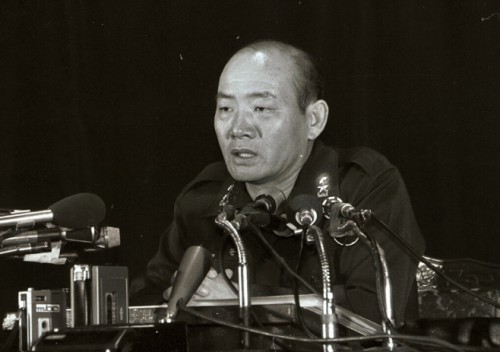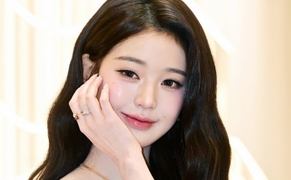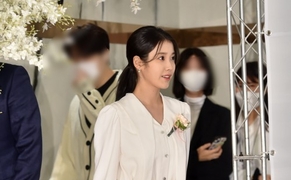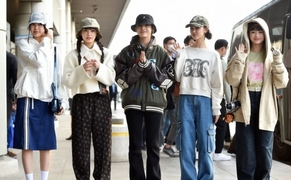 |
| Former President Chun Doo-hwan, who seized power in a coup and governed the nation from 1980 to 1988, died the age of 90 on Tuesday. The photo taken Nov. 6, 1979, shows Chun, then head of the Security Command, speaking about investigation results of President Park Chung-hee’s assassination. / Source: Yonhap |
AsiaToday reporter Lee Wook-jae
Former President Chun Doo-hwan, who served as the nation’s 11th and 12th president from 1980 to 1988, died Tuesday at the age of 90. His death came about a month after another former president and his coup comrade Roh Tae-woo died at age 88. Once considered untouchable, the former military strongman passed away without apologizing for his acts of wrongdoing, leaving a deep scar in South Korea’s modern history that has still not healed.
Chun had multiple myeloma, a type of blood cancer, and died at 8:40 a.m. at his Seoul hone early in the morning. His mortuary was set up at Seoul’s Severance Hospital.
There were no remarks that could be considered Chun’s will, according to Min Jeong-ki, a former presidential secretary. However, Min revealed that his last wish is actually written on his 2017 memoir, where he wrote, “I feel the day is coming, when the anti-national, anti-historical, and anti-civilized Kim Il-sung dynasty collapses, and the country is reunited. I’d like to see the shining country with healthy eyes and a clear mind.” He also wrote, “If my life ends before that, I would like to be buried on a frontline high ground overlooking North Korean territory.”
Min said Chun’s body will be cremated before being buried at a site to be determined later. The Ministry of Patriots & Veterans Affairs said Chun would not be buried in the National Cemetery because he was sentenced to prison for rebellion and the 1980 Gwangju massacre. The government also said it was reviewing whether to give a state funeral for the former president, however it is unlikely to happen.
After graduating from the 11th Army Academy, Chun seized power in a military coup and opened the era of the fifth republic. He laid the foundation for the country’s economic growth boosted by a weak dollar, low crude oil prices and low interest rates. However, in the process of gaining power, Chun regime imposed emergency martial law, brutally cracked down the May 18 Gwangju Democratization Movement, and tortured student protester Park Jong-chul. Eventually, he was virtually imprisoned at Baekdam Temple on Mount Seorak by his lifelong comrade Roh Tae-woo. He was sentenced to death for treason and other charges, and later was released with a pardon. However, his wrongdoings followed him for the rest of his life.
With Chun’s death, it has become difficult to seek the truth about the person who ordered the first firing of the May 18 Gwangju Democratization Movement. Regarding the May 18, Min said, “People should demand an apology only after finding whether Chun ordered the shooting on protesters.”
#Chun Doo-hwan #death
Copyright by Asiatoday
Most Read
-
1
-
2
-
3
-
4
-
5
-
6
-
7





















